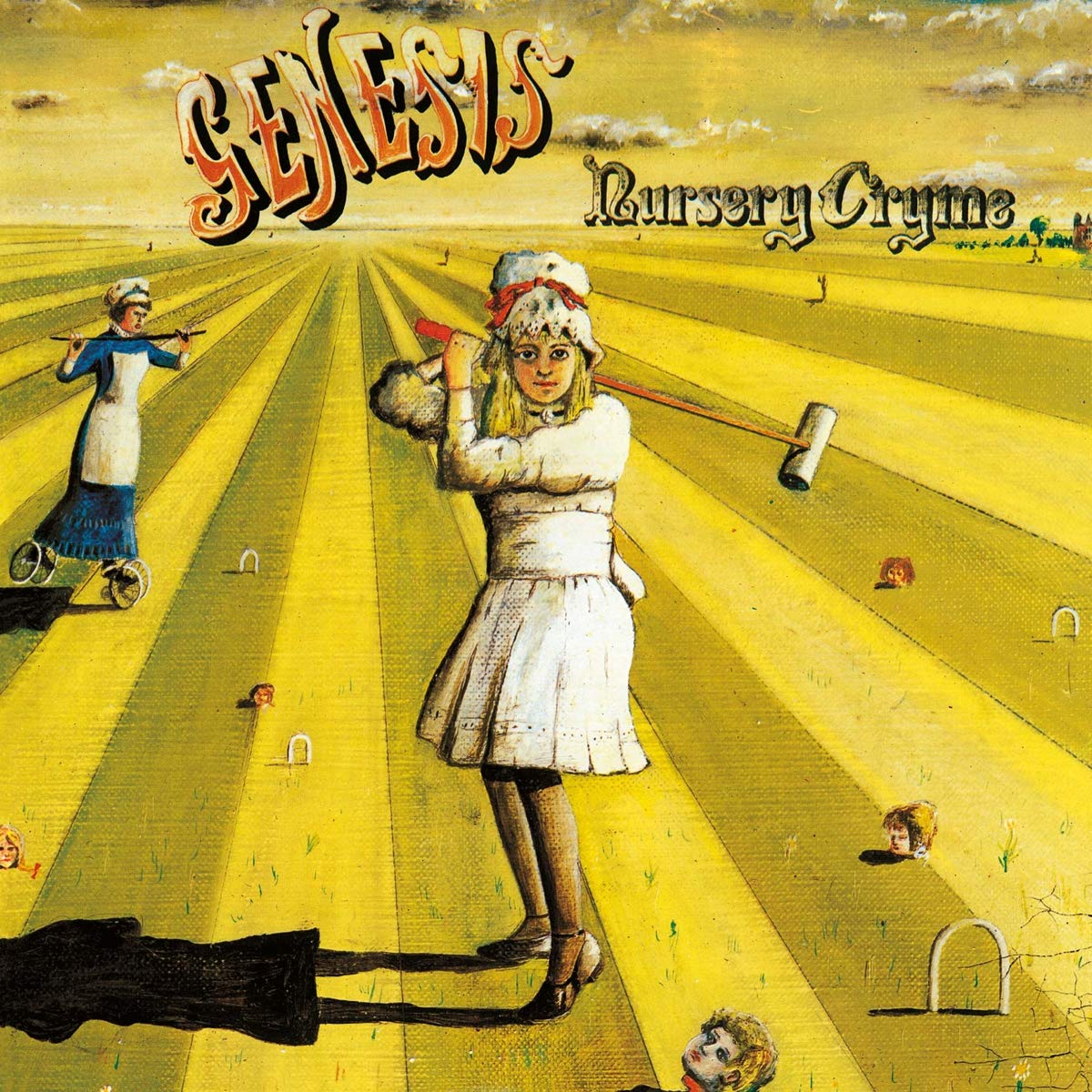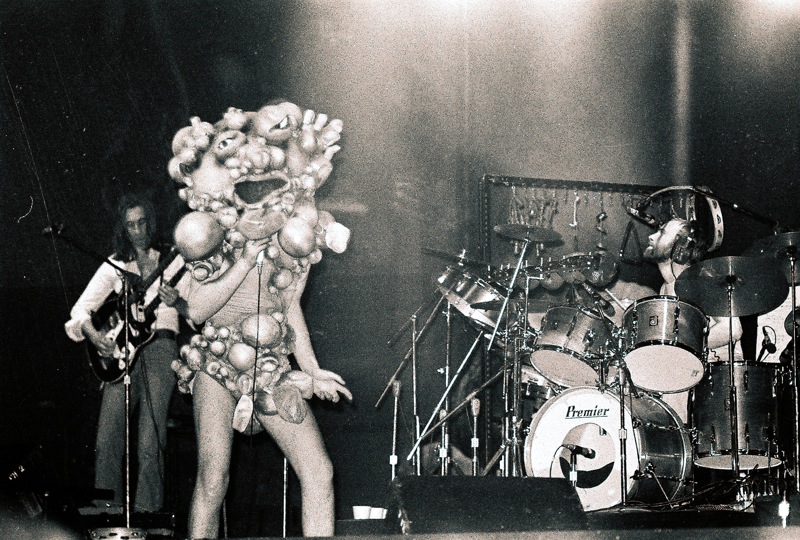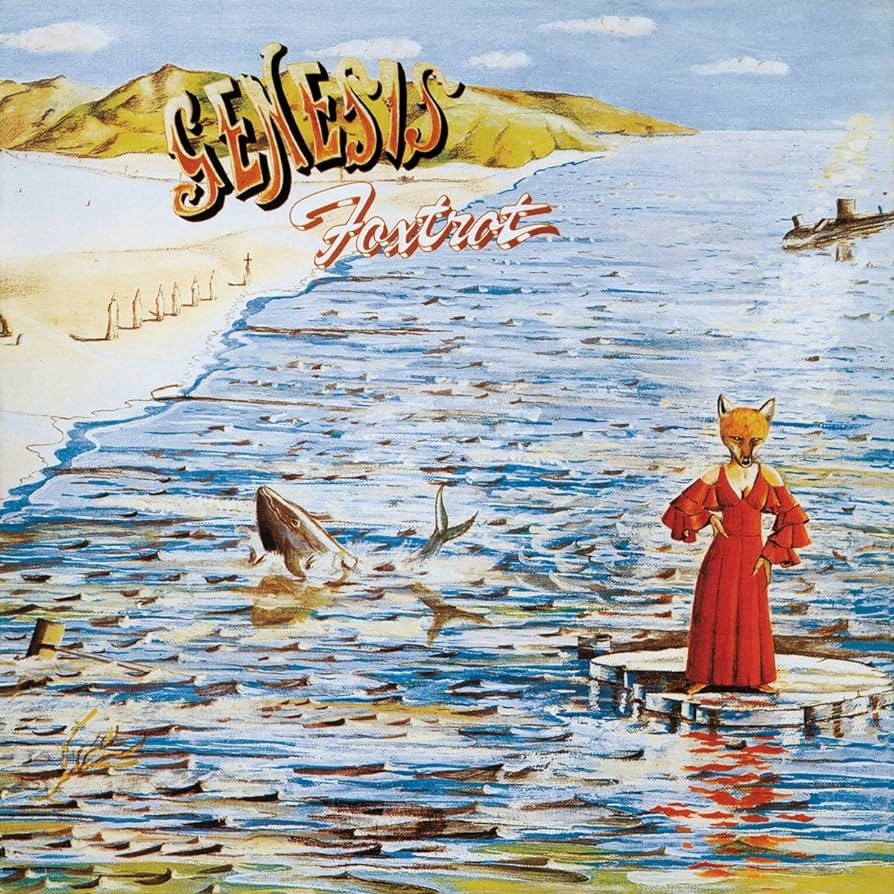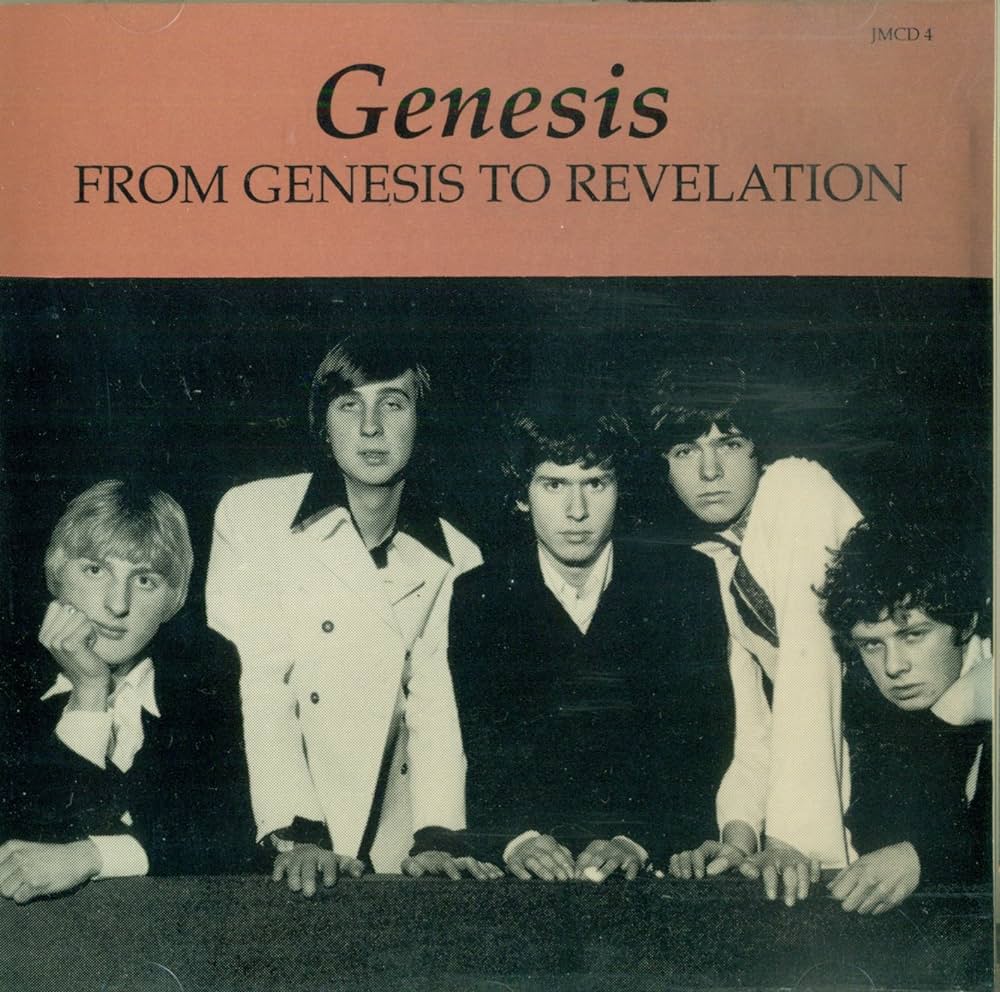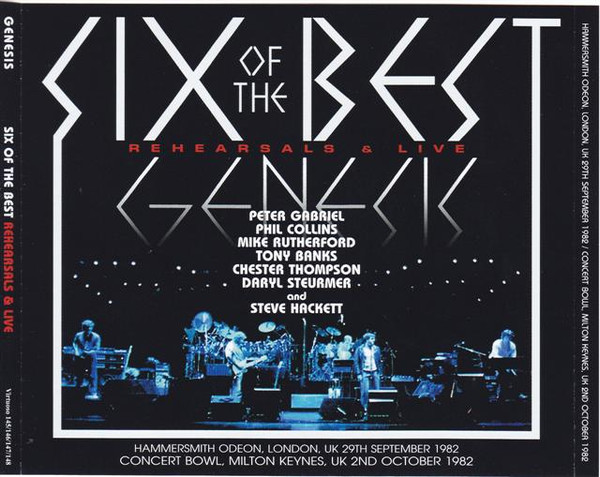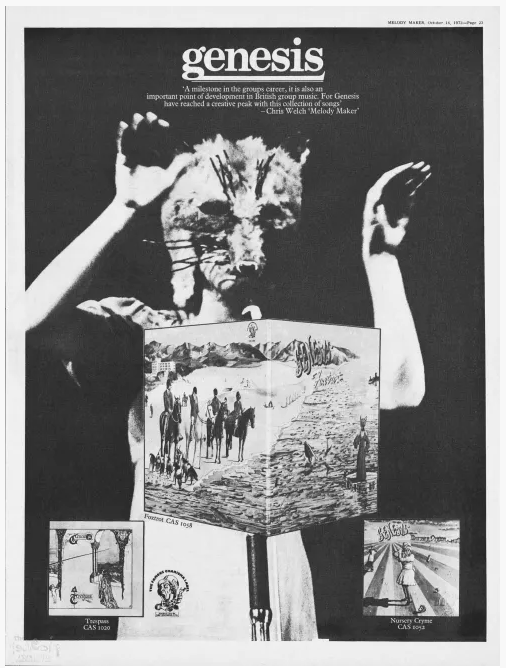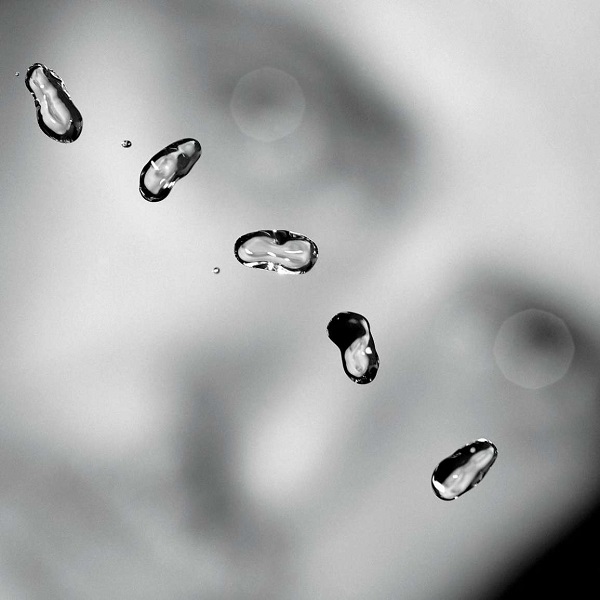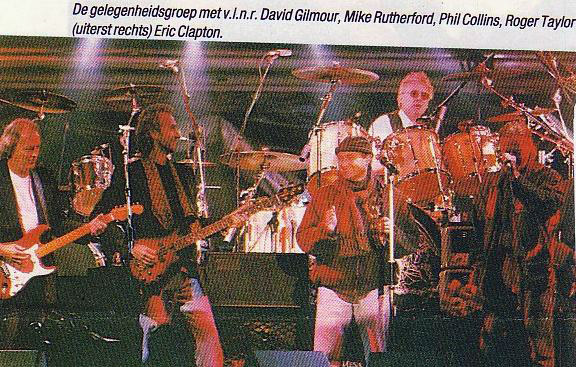In November 1971, Genesis released Nursery Cryme, their third studio album and a turning point in their musical evolution. It marked the arrival of guitarist Steve Hackett and drummer Phil Collins, whose contributions would shape the band’s signature progressive rock sound.
Continue reading “Nursery Cryme (1971) – Genesis”The Lamb Lies Down on Broadway Tour: A Theatrical Odyssey (1974–1975)
As Genesis embarked on their ambitious The Lamb Lies Down on Broadway tour, which commenced on November 20, 1974, audiences were drawn into an elaborate fusion of music and visual storytelling that spanned 102 shows across the U.S., Europe, and the UK. The tour, running until May 22, 1975, was an unprecedented venture, marked by its innovation, chaos, and lasting legacy. But how did it become one of the most memorable and challenging chapters in Genesis’ history?
Continue reading “The Lamb Lies Down on Broadway Tour: A Theatrical Odyssey (1974–1975)”The Lamb Lies Down on Broadway (1974) – Genesis
In June 1974, Genesis found themselves at a pivotal moment in their career. The band, having evolved through various phases, was now at the cusp of creating one of their most ambitious and transformative albums: The Lamb Lies Down on Broadway. Genesis had entered a new phase, both creatively and personally. The group decided to record in a new environment, seeking a place that would inspire their next sonic chapter. They chose Headley Grange, a decaying old eighteenth-century poorhouse in East Hampshire, previously inhabited by artists like Led Zeppelin and Bad Company. But when Genesis arrived, it was in a dilapidated state. The previous occupants had left behind quite a mess, and the house, with its eerie atmosphere, only added to the tension brewing within the band.
Continue reading “The Lamb Lies Down on Broadway (1974) – Genesis”Trespass (1970) – Genesis
Genesis’s second album, Trespass, marked a turning point in their musical journey. Released in October 1970 on the Charisma label (and on ABC Records in the US), the album showcased a band finding its identity, blending folk, rock, and soul in ways that set them apart from their contemporaries. Recorded at Trident Studios in London under the guidance of producer John Anthony, Trespass was a bold step forward for Genesis, a band on the brink of discovering their iconic sound.
Continue reading “Trespass (1970) – Genesis”Foxtrot (1972) – Genesis
It’s the year 1972. Genesis had released Nursery Cryme the year before and had played their first show overseas in Brussels in early 1972. Several shows in Europe followed and after their return to the UK, they began writing their next album Foxtrot, which, for many fans, would become their ‘progressive’ high point.
Continue reading “Foxtrot (1972) – Genesis”Anthony Phillips’s last gig with Genesis
On 18 July 1970, Genesis played their last show with founding member and guitarist Anthony Phillips at Haywards Heath.
Charterhouse and ‘The Anon’
Anthony Phillips joined Charterhouse, a public school in Godalming, Surrey, in April 1965. Being a guitarist, he quickly formed a band there with his fellow pupils Richard MacPhail, Rivers Jobe, Rob Tyrell and Mike Rutherford. They named themselves Anon and played songs by The Rolling Stones1, The Beatles and several other pop groups of the era. They performed mostly at parties.
The first member to bring in an own song into Anon was Anthony Phillips: ‘Pennsylvania Flickhouse’. They booked an hour of studio time at Tony Pike’s studio in Putney, as Richard MacPhail remembers: ‘We piled all the gear in Ant’s mother’s Mercedes and got on a bus and I thought ‘An hour, on my God, what are we gonna do with a whole hour? Each song’s three minutes long, that means we’re gonna get about nine songs done.’ We just got one done and we had huge rails with Mr Pike because everything was of course too loud and he said ‘You’re gonna ruin my equipment!’, all that classic stuff that went on in those days in recording studios.’2
In December 1966, the group disbanded.
Anthony Phillips in Genesis
In 1967, Ant and his friend and fellow guitarist Mike Rutherford began writing music together. To record a demo, they asked another Charterhouse pupil, Tony Banks, if he could play organ on a song. Tony agreed under the condition that his mate Peter Gabriel could also come along and sing one of their songs. Both of them had also played in a band at Charterhouse, The Garden Wall. Ant and Mike agreed and soon, former Garden Wall drummer Chris Stewart joined the group.
The demo tape was given to producer Jonathan King, who signed them to his publishing company and they recorded some singles. King then named the group Genesis, and the group recorded their first studio album From Genesis to Revelation (1969). Like on the singles, King added strings arranged by Arthur Greenslade to the mix. To their frustration, the band only found out about the strings when listening to the finished version of From Genesis To Revelation with only Ant Phillips showing his anger by storming out of the studio.
By mid-1969, the boys’ parents wanted them to resume education. At Charterhouse, Ant began studying for further A levels to pursue a university degree. But Ant and Mike had been gripped by rock and roll and decided to become professional musicians. By the end of the summer of 1969, Peter and Tony joined them in their wish to become full-time musicians. They began writing music and touring the country from late 1969 to early 1970. ‘Yet, something was lacking‘, it is said in the press kit of Ant’s first solo album, ‘Phillips, perhaps because he was younger than the others found that life on the road was getting in the way of his writing.’3
The unhappiness and the stress began affecting Ant’s health and also he began suffering from stage fright: : ‘I was in Watford Tech, I remember playing the opening thing of ‘Let Us Now Make Love’ and I looked at the guitar and I thought ‘I haven’t got a clue what comes next’ and then I saw myself playing, but it was really scary.’4 Rich MacPhail remembers him playing a gig at Hackney where Ant was almost catatonic.5
Ant battled with the stage fright for three months thinking it was a passing phase and then fell ill with bronchial pneumonia: ‘Doctors were advising me to leave [the band]6‘, Ant says.
In June 1970, Genesis recorded their second album Trespass. Ant enjoyed working in the studio, but in July, they went straight back into band-life with little sleep, a lot of excitement and although Richard MacPhail tried his best to nourish his mates, pretty basic food. They were travelling and sleeping in their bread van or on floors: ‘We literally pitched up somewhere in the Midlands and we had nowhere to stay’, Ant recalls. ‘Too far to go back and some guy said: ‘Well, I know a guy with a bloody big house in Buxton’ and we stayed on the drafted floor of a bloody big house in Buxton.’7
Anthony Phillips leaves the band
Finally, Ant decided to leave Genesis. ‘I remember driving out with with Richard MacPhail who said ‘Can we have a word with you?”, Mike Rutherford remembers. ‘To the pitch at Richmond rugby ground after a soundcheck. Light was falling, it was a weird atmosphere and Ant said he wanted to leave. It was a huge shock to me.’8 Ant’s last show was at Haywards Heath on 18 July 1970.
Tony Banks says: ‘I thought it was the end of the group. He was vital to its formation and in many ways he was the strongest member. We felt that whatever was special about us was a combination of the four of us being together in the same room so I assumed that when he left, that was it.’9
Losing Ant ‘was the closest we came to busting up’, Mike Rutherford agrees. ‘For some reason we felt so close that if one left, we thought we couldn’t carry on. Of all the changes we’ve been through, surviving Ant leaving was the hardest.’10
The aftermath
After Ant’s departure, Genesis did not disband, but his influence remained. The acoustic beginning of the ‘The Musical Box’, the opening song of their next album Nursery Cryme, was based on an instrumental guitar piece by Mike and Ant called ‘F Sharp’.
Ant himself went into a hiatus. ‘I left Genesis in a cloud of dust’, he says. ‘I remember I was listening to Sibelius when I had one those strange revelations – that I was terribly limited.’11 He started studying various musical styles and in 1974, he began teaching music as a means to further explore the subject. In 1977 he said: ‘In the time since I left Genesis, I’ve studied classical guitar, piano, orchestration.’12 That same year he released his first solo album The Geese And The Ghost. Anthony Phillips is still active as a musician today.
Title photo: Cover of one of the various editions of From Genesis to Revelation
Footnotes
- To this day, Ant sends Christmas cards to Richard addressed to ‘Mick Phail’. ↩︎
- RICHARD MACPHAIL INTERVIEW Revised : GENESIS early years ↩︎
- “The Geese and The Ghost Press Kit“. Passport Records. 1977. pp. 2–3. ↩︎
- ANTHONY PHILLIPS UNFILTERED: GENESIS C0-FOUNDER IN CONVERSATION ↩︎
- RICHARD MACPHAIL INTERVIEW Revised : GENESIS early years. In fact, Anthony Phillips has not played live to this day. ↩︎
- Cherry Red Interview: Anthony Phillips Story – Part 1 – Interview by Mark Powell – 2014 ↩︎
- ANTHONY PHILLIPS UNFILTERED: GENESIS C0-FOUNDER IN CONVERSATION ↩︎
- MIKE RUTHERFORD UNFILTERED: GENESIS GUITARIST/COMPOSER IN CONVERSATION. Now Revised ↩︎
- Bowler, Dave; Dray, Bryan, Genesis. A biography. (London: Sidgwick & Jackson, 1992), p. 35. ↩︎
- Ibid. ↩︎
- Hedges, Dan, ‘It’s that candour moment…’, Sounds (26 March 1977). ↩︎
- Ibid. ↩︎
Six Of The Best
On October 2, 1982, the legendary ‘Six Of The Best’ reunion show with Peter Gabriel and Genesis took place at Milton Keynes.
Continue reading “Six Of The Best”Dublin, 28 September 1972: Peter Gabriel steps onstage in a fox head and red dress
On 28 September 1972, Genesis singer Peter Gabriel shocked both his bandmates and the audience in Dublin when he appeared during The Musical Box wearing a fox’s head and a long red dress, the same striking image that would grace the cover of Foxtrot.
Continue reading “Dublin, 28 September 1972: Peter Gabriel steps onstage in a fox head and red dress”Up (2002) – Peter Gabriel
On 23 September 2002, Peter Gabriel’s album Up was released.
Continue reading “Up (2002) – Peter Gabriel”Phil Collins’ Last Gig with Genesis at Cowdray Ruins, 18 September 1993
On 18 September 1993, Genesis gave what would turn out to be Phil Collins’ final live performance with the band: an understated charity concert at the historic Cowdray Ruins in Sussex.
Genesis in 1993
1993 was a relatively quiet year for Genesis. Following their massive We Can’t Dance tour in 1992, the members returned to their solo projects. For Phil Collins, it was a turbulent time. His marriage to his second wife, Jill, was breaking down under heavy tabloid scrutiny, and he poured much of that emotion into his solo album Both Sides. Dark, angry, and intensely personal, the album divided critics, something that weighed heavily on him.
Against this backdrop, Genesis regrouped briefly for a one-off charity concert at Cowdray Ruins. The show raised funds for the King Edward VII Hospice and featured an extraordinary lineup, including Pink Floyd and the surviving members of Queen.
A unique Genesis lineup
That night, Genesis appeared without their regular touring partners Chester Thompson and Daryl Stuermer. Instead, the drums were handled by Roger Taylor (Queen) and Gary Wallis (Mike + The Mechanics), while Tim Renwick (Pink Floyd, Mike + The Mechanics) filled in on guitar and bass.
Genesis performed a short set including “Turn It On Again,” “Hold On My Heart,” “I Can’t Dance,” and a “Tonight, Tonight, Tonight / Invisible Touch” medley. Some sources claim they also played Collins’ solo track “That’s Just the Way It Is,” though this remains doubtful.
Next, Pink Floyd took the stage, with Paul Young (Mike + The Mechanics) providing vocals on some numbers and Mike Rutherford stepping in on bass. Eric Clapton also performed a short set with Mike on bass, before the night ended with the “All Star Cowdray Ruins Band,” featuring nearly everyone involved, running through “Ain’t That Peculiar,” “Can I Get a Witness,” and “Gimme Some Lovin’.”
Low-quality recordings of the event survive on YouTube, but unfortunately no professional release exists, something of a shame, given its historical importance.
Phil’s reflections
Although successful, the concert was modest in scale. Few realized it marked the end of Collins’ 18-year run fronting Genesis. For Phil, the show highlighted his growing distance from the band:
“In the middle of my writing and making BOTH SIDES, Genesis did a concert with Queen. […] But I didn’t enjoy it … As I was singing these songs, it didn’t feel natural. Obviously, it was bad timing, going just like that from doing my most personal thing to a Genesis thing and back. But it definitely felt like ‘What am I doing here?’, like shoes that don’t fit anymore.“1
Though he wouldn’t announce his departure until 1996, the seeds had been sown that evening.
The Cowdray Ruins line-up (as listed in the program):
- Tony Banks – Genesis (keyboards)
- Eric Clapton – guitar
- Phil Collins – Genesis (vocals)
- John Deacon – Queen (bass)
- David Gilmour – Pink Floyd (guitar)
- Adrian Lee – Mike + The Mechanics (keyboards)
- Nick Mason – Pink Floyd (drums)
- Tim Renwick – Mike + The Mechanics / Pink Floyd (bass, guitar)
- Mike Rutherford – Genesis (guitar, bass)
- Roger Taylor – Queen (vocals, drums)
- Garry Wallis – drums
- Richard Wright – Pink Floyd (keyboards)
- Paul Young – Mike + The Mechanics (vocals)
Phil’s departure was still a few years away from being official. But looking back, Cowdray Ruins was the true closing chapter of his time with Genesis.
Sources
Hewitt, Alan (2000): Opening The Musical Box. London: Firefly Publishing.
Platts, Robin (2007): Genesis. Behind the lines, 1967-2007. Burlington, Ont., Canada: Collectors Guide Pub.
Thompson, Dave (2005): Turn it on again. Peter Gabriel, Phil Collins & Genesis. San Francisco: Backbeat Books.
- in Platts 2007: 140 ↩︎

